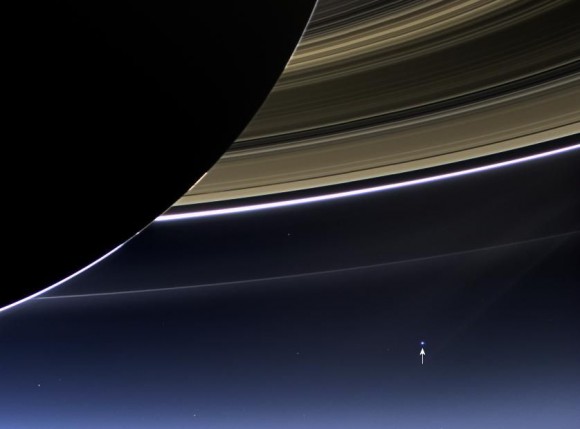| Online: | |
| Visits: | |
| Stories: |

| Story Views | |
| Now: | |
| Last Hour: | |
| Last 24 Hours: | |
| Total: | |
Why Universe Today Writes on Climate Change

On Jul. 19, 2013 NASA’s Cassini spacecraft captured Earth as a pale blue dot. Image Credit: NASA/JPL-Caltech/Space Science Institute
Online science reporting is difficult. Never mind the incredible amount of work each story requires from interviewing scientists to meticulously choosing the words you will use to describe a tough subject. That’s the fun part. It’s just after you hit the blue publish button, when the story goes live, that things get rough. Your readers will tear you apart. They will comment on any misplaced commas, a number with one too many significant figures, and an added space in between sentences. They will criticize and not compliment.
Now I’m not saying this isn’t welcome. By all means if I have misspoken, do let me know. I need to be on top of my game 100% of the time and readers’ comments help make that happen. They can improve an article tremendously, allowing readers to carry on the conversation and provide a richer context. Thought-provoking commenters always bring a smile to my face.
But then there’s online environmental reporting. From day one, reader comments made me realize that I needed to develop a thicker skin. I won’t go into the nasty details here, but in my most recent article, readers asked why Universe Today — an astronomy and space news site — would report on the science and even the politics regarding climate change. Well dear readers, I have heard you, and here is the answer to your question.
(…)
Read the rest of Why Universe Today Writes on Climate Change (568 words)
© Shannon Hall for Universe Today, 2014. |
Permalink |
No comment |
Post tags: Astronomy, Climate Change
Feed enhanced by Better Feed from Ozh
Source: http://www.universetoday.com/111059/why-universe-today-writes-on-climate-change/



